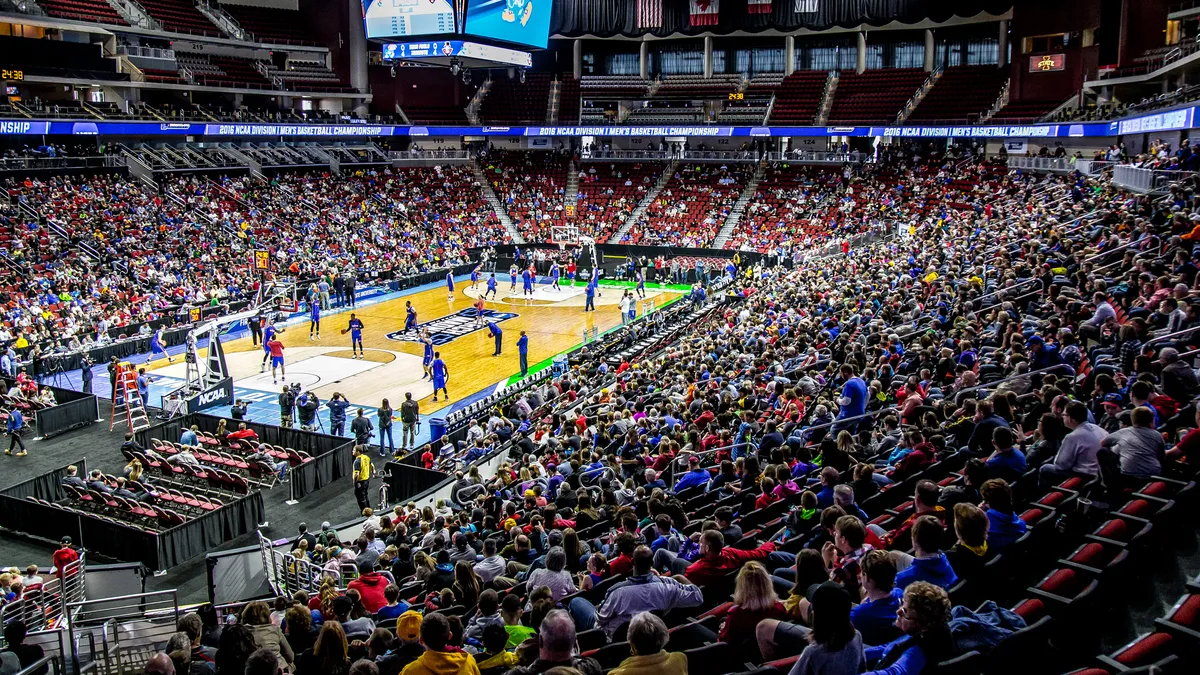Dive Brief:
- College athletes may be considered employees under the Fair Labor Standards Act if their relationship to a school or the NCAA reflects an “economic reality” in which the playing of the sport “crosses the legal line into work protected by the FLSA,” the 3rd U.S. Circuit Court of Appeals held July 11.
- In the case, Johnson v. NCAA, a three-judge panel rejected NCAA and member schools’ arguments that athletes are barred from bringing FLSA claims solely because of a “revered tradition of amateurism.” The idea that college sports are defined by the fact that athletes are not paid “is circular, unpersuasive, and increasingly untrue,” the 3rd Circuit said.
- The court remanded the case back to the U.S. District Court for the Eastern District of Pennsylvania and instructed that court to apply an “an economic realities analysis grounded in common-law agency principles” to determine whether the plaintiff athletes may be considered employees.
Dive Insight:
The decision represents yet another potential milestone in the legal battle over the relationship between college athletes, the NCAA and member colleges and universities.
It is a fight that received increased attention in 2021, when the U.S. Supreme Court issued a unanimous decision in NCAA v. Alston, in which it held that NCAA restrictions on education-related benefits received by student athletes are unlawful. Shortly after the decision, the NCAA changed its policies to permit students to profit from their names, images and likenesses.
The 3rd Circuit on Thursday referenced the majority opinion in Alston as well as a concurring opinion in that case by Justice Brett Kavanaugh, who wrote that the traditions maintained as part of college sports “cannot justify the NCAA’s decision to build a massive money-raising enterprise on the backs of student athletes who are not fairly compensated.”
Instead, the 3rd Circuit said the district court should apply a framework that distinguishes college athletes who play their sports for predominantly recreational or noncommercial reasons from those whose play could be considered work under the FLSA.
One attorney who previously spoke to HR Dive highlighted the numerous questions likely to emerge should student athletes be classified as employees, ranging from the calculation of work hours to the compensability of practices and travel time, among other concerns.
While the 3rd Circuit’s decision specifically dealt with student athlete classification for FLSA purposes, athletes have also asserted their right to collectively bargain under the National Labor Relations Act. Men’s basketball players at Dartmouth College made history in March when they voted to form the first-ever U.S. college athlete labor union.













